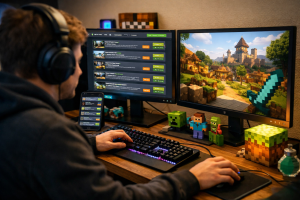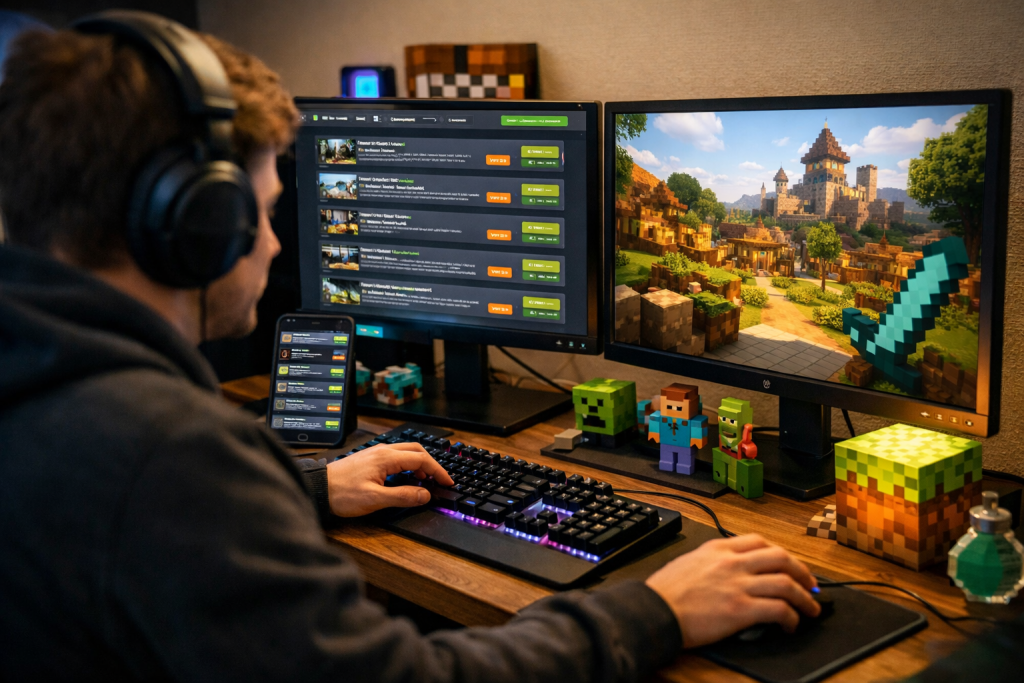It’s time to level up your board game collection and introduce your little ones to a world of fun and learning. But with so many options out there, how do you know which ones are truly worth your time and investment? Don’t worry, we’ve got you covered. In this article, we will reveal the top picks for board games that are not only entertaining but also educational, helping your kids develop crucial skills while they play. So, get ready to embark on a journey of discovery as we unveil the best board games for kids that will keep them engaged and excited for hours on end.
Our Favorite Preschool Board Games
If you’re looking for engaging and educational board games for your preschooler, we’ve got you covered with our favorite picks! Board games offer numerous benefits for preschoolers, from promoting cognitive and social skills to enhancing problem-solving abilities. But how do you choose the right board game for your little one? When selecting a game for preschoolers, consider their interests, attention span, and developmental stage. Look for games with simple rules, colorful visuals, and age-appropriate themes. To engage preschoolers in board games, make it a fun and interactive experience. Use strategies like modeling gameplay, praising their efforts, and providing clear instructions. As for teaching preschoolers to play board games, start with cooperative games that encourage teamwork and sharing. Gradually introduce competitive games to teach them about winning and losing gracefully. Now, let’s dive into our top-rated board games for preschoolers. Set Junior is a fantastic choice as it introduces fundamental card-game skills and can be applied to more advanced games. Dinosaur Escape Game relies on memory and cooperative team strategy, while Boop offers strategic depth with simple decisions. Ice Cool 2 is a dexterity game that challenges their flicking skills, and My First Stone Age is a kid-friendly version of a popular family game. These games will provide hours of fun and learning for your preschooler!
Top Gateway Games for Young Kids
Now that we’ve explored our favorite preschool board games, let’s discover the top gateway games for young kids that will introduce them to the exciting world of board gaming. Playing board games has numerous benefits for young children. Not only do they provide entertainment, but they also promote cognitive development and social skills. By engaging in strategic thinking, problem-solving, and decision-making, kids can enhance their cognitive skills while having fun. Board games also teach important life skills such as patience, sportsmanship, and collaboration.
When choosing the right board games for preschoolers, it’s important to consider their age and developmental level. Look for games with simple rules and engaging gameplay that can be played independently or with a little assistance. Games that incorporate colors, shapes, numbers, and letters can help reinforce early learning concepts. Additionally, opt for games that offer multiple ways to play or have adjustable difficulty levels to accommodate different skill levels.
Introducing board games to young children can be a fun and educational experience. Start by selecting games that align with their interests and abilities. Use the opportunity to teach them important skills such as taking turns, following rules, and being a good sport. Encourage independent thinking and problem-solving by allowing them to make their own decisions during gameplay. Most importantly, make it a positive and enjoyable experience by praising their efforts and celebrating their victories.
| Benefits of playing gateway games for young kids | Tips for introducing board games to young children |
|---|---|
| Enhances cognitive skills | Choose games that align with their interests |
| Promotes social interaction | Start with games that have simple rules |
| Develops strategic thinking | Encourage independent thinking and decision-making |
| Fosters problem-solving skills | Create a positive and enjoyable experience |
Engaging Board Games for Elementary-School Kids
Engage your elementary-school kids with exciting and educational board games that will keep them entertained and challenged. Here are some popular board games for kids in this age group:
- Engaging Strategy Games: Introduce your kids to the world of strategy with games like Set Junior, where they learn fundamental card-game skills that can be applied to more advanced games like Go Fish or Poker.
- Educational Board Games: Dinosaur Escape Game is a cooperative memory-based game that relies heavily on memory and team strategy. It’s a fun way for kids to learn while playing.
- Interactive Multiplayer Games: Boop is an abstract game about lining up cats on a bed. It provides strategic depth with simple decisions, making it perfect for interactive gameplay.
- Challenging Puzzle Games: The Magic Labyrinth is a mental mapping game where players have to chart a clear path to the object by mentally mapping the location of invisible walls. It’s a great way to challenge their problem-solving skills.
These engaging board games for elementary-school kids will not only keep them entertained but also help develop their strategic thinking, memory, and problem-solving skills. So, gather the family and enjoy a fun and educational game night!
Family-Friendly Board Games for All Ages
Get ready for quality family time and fun with board games that are perfect for all ages! Whether you’re planning a family game night or looking for educational board games for learning, there are plenty of options that cater to different interests and skill levels. Board games are not only a great source of entertainment but also provide numerous benefits for cognitive development, critical thinking, and social interaction.
For interactive board games that engage the whole family, consider strategy games that promote critical thinking and problem-solving skills. Games like Ticket to Ride and Carcassonne challenge players to strategize and make decisions while building routes or constructing landscapes. These games offer a balance of luck and strategy, making them enjoyable for players of all ages.
If you’re looking for social deduction board games for group play, games like Codenames and The Resistance are excellent choices. These games require players to communicate, deduce, and work together to achieve their objectives. Social deduction games encourage collaboration, critical thinking, and decision-making skills while fostering a sense of camaraderie and friendly competition.
For educational board games that promote learning, games like Quirkle and Bananagrams are fantastic options. These games enhance cognitive skills such as pattern recognition, spatial reasoning, and vocabulary development. They offer a fun and engaging way for kids and adults to learn and expand their knowledge.
Cooperative Board Games for Collaborative Play
For a cooperative and engaging gaming experience that promotes teamwork and collaboration, let’s explore the exciting world of cooperative board games. These games not only provide hours of fun, but also offer numerous benefits for kids. Here are some of the reasons why cooperative board games are great for children:
- Promote Teamwork and Communication Skills: In cooperative board games, players must work together towards a common goal. This encourages kids to communicate effectively, listen to others’ ideas, and make decisions as a team.
- Strategies for Successful Collaboration: Cooperative games require players to strategize and coordinate their moves. Kids learn to think critically, problem-solve, and make decisions based on the needs of the group.
- Examples of Popular Cooperative Board Games: Some popular cooperative board games for kids include “Race to the Treasure!” where players work together to gather keys and unlock a treasure before an ogre reaches it, and “Forbidden Island,” where players collaborate to collect treasures and escape an island before it sinks.
- Tips for Choosing the Right Cooperative Board Game: Consider the age and interests of your child when selecting a cooperative board game. Look for games with clear rules, engaging themes, and adjustable difficulty levels to ensure an enjoyable and challenging experience.
Cooperative board games provide a unique opportunity for kids to learn and grow together. They foster teamwork, communication, and critical thinking skills while having a blast. So gather your family or friends and embark on an exciting cooperative board game adventure!
Dexterity and Skill-Based Board Games
Dexterity and skill-based board games offer a thrilling and hands-on gaming experience that challenges players to showcase their physical abilities and fine-tune their motor skills. These types of games not only provide entertainment but also offer several benefits for kids. By playing dexterity games, children can develop their motor skills, hand-eye coordination, and precision. These games require strategy and precision, as players need to carefully plan their moves and execute them with precision to achieve success.
Here is a table showcasing some popular skill-based board games for kids:
| Game | Description |
|---|---|
| Jenga | Classic stacking game that requires steady hands and careful moves. |
| Operation | Players must use tweezers to remove specific body parts from a patient without touching the sides. |
| Loopin’ Louie | A fast-paced game where players use a lever to protect their chickens from an airborne crazed pilot. |
| Crocodile Dentist | Players take turns pressing down on the crocodile’s teeth, but they must be careful not to get bitten! |
Dexterity games not only provide a fun and exciting gaming experience but also contribute to the development of essential motor skills in children. These games require focus, precision, and coordination, all of which help in fine-tuning their physical abilities. So, the next time you’re looking for a board game for your kids, consider a dexterity or skill-based game to provide them with an enjoyable and beneficial gaming experience.
Board Games That Promote Creativity and Storytelling
Now let’s explore board games that ignite imagination and storytelling skills in kids, encouraging them to unleash their creativity and weave captivating tales. Board games have the power to inspire artistic expression, imagination exploration, collaborative storytelling, storytelling mechanics, and theme-based storytelling. Here are some examples of board games that promote these skills:
- Artistic expression: Some board games, like Dixit, use provocative and fantastical illustrations to foster creativity, storytelling, and discourse without requiring reading or counting skills. Kids can let their imaginations run wild as they interpret and share their own stories based on the artwork.
- Imagination exploration: Games like Disney Sketchy Tales combine drawing and storytelling to encourage kids to use their imagination. With this game, players take turns drawing a random Disney character doing something, and then the next player has to guess what the drawing represents. This results in silly and collaborative storytelling, where artistic talent is not required and misinterpretations add to the fun.
- Collaborative storytelling: Board games like Charterstone and Exit: The Game – The House of Riddles promote collaborative storytelling among players. In Charterstone, a legacy game, the board is permanently altered each time it is played, allowing players to experience shared discovery and create a unique narrative. In Exit: The Game – The House of Riddles, players work together to solve riddles and puzzles to escape from an abandoned house, fostering discussion, collaborative thinking, and enjoyment for players of different ages and skill levels.
- Storytelling mechanics: Some board games, such as Ticket to Ride, incorporate storytelling mechanics to enhance the gameplay experience. In Ticket to Ride, players connect cities with train tracks, and they can sabotage others’ city-connecting efforts, creating their own narratives of competition and strategy.
- Theme-based storytelling: Board games like Disney Villainous immerse players in themed worlds and inspire storytelling based on classic films. Players enact diabolic schemes, and the multiple expansions available provide a variety of storylines for older kids and teens. Even younger players can enjoy the game with help from older friends, siblings, or parents.
These board games not only provide entertainment but also serve as valuable tools for developing creativity, imagination, collaboration, and storytelling skills in kids. By engaging in these games, children can explore different ways of expressing themselves, build their imaginative capabilities, work together to create stories, and understand the mechanics that enhance storytelling. So, gather your family or friends and embark on a storytelling adventure with these captivating board games.





















